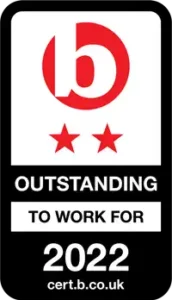Google Trends can often be ignored as a marketing tool but can offer really valuable insights into search trends and topics to support your SEO work. Every “SEO’er” knows the importance of keyword research, and I’m sure we’ve all used the standard tools such as Google Keyword Planner to find out search volumes of keywords, but let’s take a look at how you can use Google Trends to give your SEO strategy that extra boost.
What is Google Trends & How Can We Use This Within SEO?
Google Trends is a free online tool that offers insights and data into the popularity of certain keywords / topics in both Google and Youtube.
You can use Google Trends to identify the time of year when interest in certain topics spikes, compare the trends of multiple search terms or even uncover related topics to the search term you are analysing.
5 Ways You Can Use Google Trends for SEO
So now we know what Google Trends is, let’s take a look at how you can incorporate Google Trends into your SEO research strategy. I will use the topic of Christmas.
1. Keyword Research
Google Trends allows you to see accurate search volume data for your selected keywords and see the weekly number of searches for your chosen keyword. Google Trends also allows you to search for a topic and then enables you to see related search queries that are popular in relation to this topic which can be useful for keyword discovery.
As we know, keyword research is a vital part of any SEO strategy to ensure we are targeting relevant and high volume keywords on your website, so Google Trends can play a big part in your keyword research and discovery.
2. Uncover Related Topics
Not only can Google Trends help you discover related search terms, but it also allows you to find related topics that are relevant to your search term. This report provides a more broad analysis of the trending topics that users may also be interested in, which you can then use to discover potential ideas for content areas and topics in the future.
3. Target by Location
Another useful area of Google Trends is being able to see what specific regions and subregions of the country are interested and searching for your topic or query. This can be useful if your client/business is very geographically focused as you can then see if this topic is popular in the target area. This report can also benefit businesses that provide their service across the whole country by targeting your content based on the areas that have the most interest. (This can also really benefit Paid Search Ads by being able to target ads at different regions that have more interest in a topic.)
4. Identify ‘Breakout’ or ‘Trending’ Queries
With all the suggested topics and search queries, you will see a percentage or the word ‘Breakout’ next to these, which relates to how much the interest has increased based on the period of time you have selected. The word breakout means that the search term has increased in popularity by over 5000% in the selected period of time, so this is a great time to start focussing your SEO work around this topic to catch the spike in the audience! Understanding which search queries or topics are trending can benefit your SEO work.
5. Discover Trending YouTube Searches
Google Trends is not only a great tool for understanding search queries in Google, but you can also gather data and insights for YouTube searches as well. This is really useful if YouTube & video marketing is a big part of your digital strategy, enabling you to understand search trends for videos. Utilising this data can also allow you to optimise your YouTube video descriptions and titles to target these trends.
Let’s Get Started with Google Trends!
So there we have it, just a few ways you can use Google Trends for SEO. Here at Seed, we incorporate Google Trends into our day to day SEO work, ensuring we are targeting the right keywords and identifying the trending topics in order to focus our content towards these spikes in interest. If you would like to understand more about how we can help increase organic traffic to your website using our research and discovery, get in touch here!








